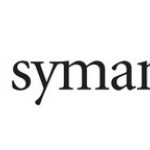- 업종: Computer
- Number of terms: 2033
- Number of blossaries: 0
- Company Profile:
Symantec Corporation is an computer security software corporation headquartered in Mountain View, California, United States. It is a Fortune 500 company and a member of the S&P 500 stock market index.
This acronym means "Encapsulating Security Payload", and refers to a protocol, within the IPSEC suite of protocols, for the privacy protection of IP data. The ESP protocol is described in RFC 1827.
Industry:Network hardware
The Fast Path mechanism is a compromise between the efficiency of packet filtering and the security of application proxies. As of this writing, its use is restricted to the HTTP and HTTPS protocols. Traffic that uses the Fast Path mechanism is governed by authorization rules, but the actual connection is never proxied at the application level. The first time a connection is authorized for a Fast Path rule, the proxy daemon calls down to the firewall's VPN driver and orders the driver to put all packets that fit the parameters of the rule through the firewall at the IP level, rather than sending them up to the application level. Address hiding occurs, but traffic logging does not.
Industry:Network hardware
The fetcher daemon is responsible for downloading and installing updates to the WebNOT and NewsNOT ratings databases.
Industry:Network hardware
This acronym means "FTP daemon", and refers to the firewall's standard proxy for FTP, which is installed as part of the Raptor software.
Industry:Network hardware
A fully-qualified name (FQN), such as thefw.peach.com is composed of a hostname (thefw) and an Internet domain name (peach.com).
Industry:Network hardware
A text and information management application-level protocol that uses port 70/TCP. The firewall can pass Gopher through its standard proxy, as well as browser Gopher proxied through an HTTP connection on 80/TCP.
Industry:Network hardware
This acronym means "Gopher daemon", and refers to the firewall's standard proxy for Gopher, which is installed as part of the Raptor firewall software.
Industry:Network hardware
This acronym means "Generic Service Passer". See also Special Service. GSPs are used to provide application-level proxy for protocols not handled by the standard proxies. A single GSP can be used to manage a single TCP or UDP port for either transparent or non-transparent, inbound or outbound access. Examples of protocols that should be managed using a GSP include POP-3, Notes, and IRC. Like the standard proxies on the firewall, GSPs are controlled using authorization rules. They also perform address hiding and traffic logging. The major difference between the standard proxies and the GSP is that the GSP has no knowledge of the underlying application level protocol, and hence, cannot perform any protocol-specific security monitoring. Another related limitation is that authentication cannot be applied to any rule that governs a GSP, as there is no means to guarantee that the application can respond. Hence, applying a rule to a GSP will cause it to fail.
Industry:Network hardware
This term means "Gateway Control", and refers to the daemon that handles the authorization phase of all application-level traffic on the Raptor Firewall.
Industry:Network hardware
This term means "Gateway Password", and refers to a simple password authentication mechanism provided by the Raptor Firewall. All user account and password information for gwpasswd authentication is created and managed on the firewall.
Industry:Network hardware
